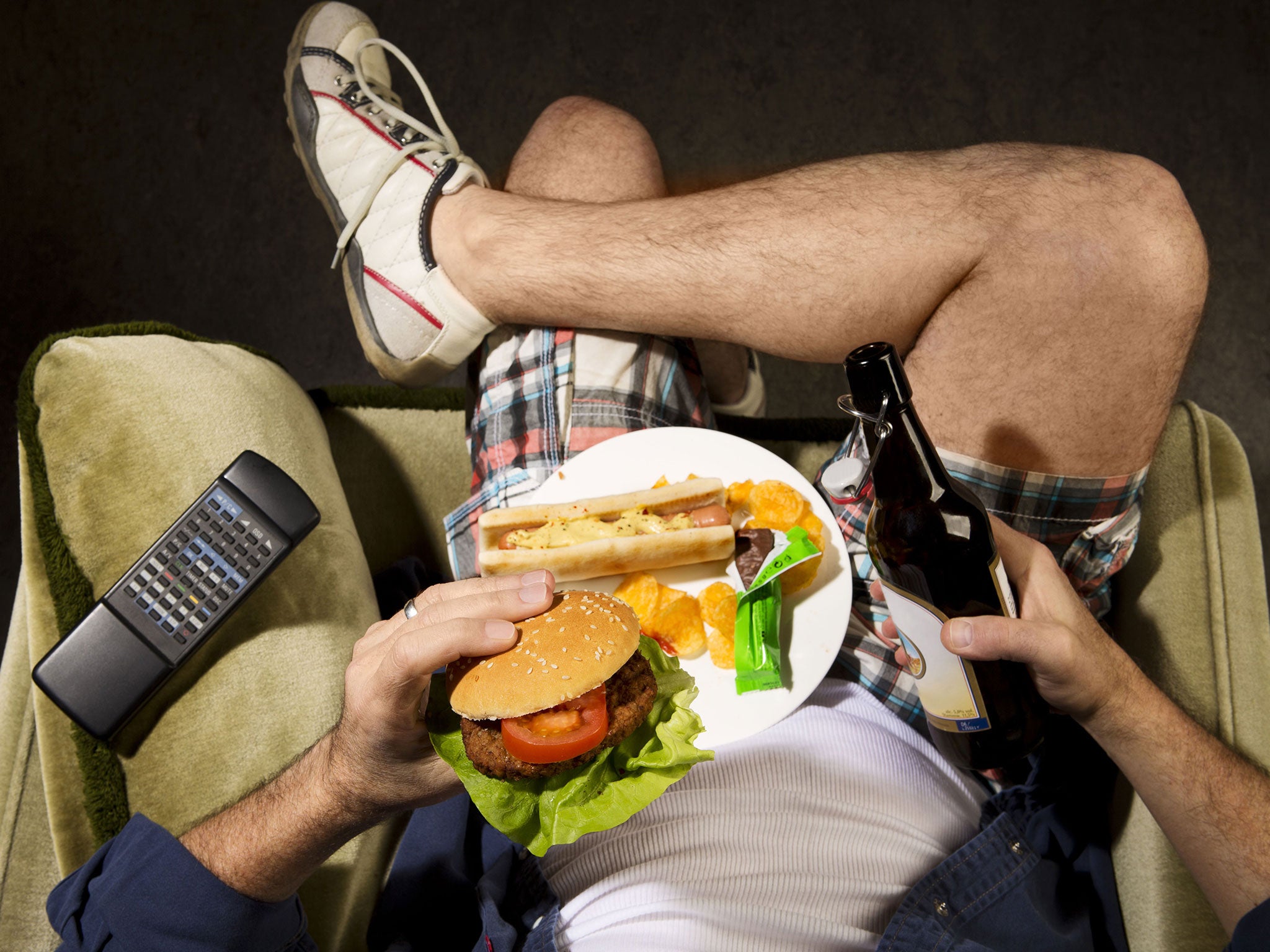Action films make you fat, study finds
More distracting or frenetic TV seems to cause viewers to consume more food, say researchers

Couch potatoes captivated by fast-paced action films eat far more than those watching more sedate programmes, according to new research warning that Hollywood blockbusters can be bad for your dietary health.
People watching the exploits of Ewan McGregor and Scarlett Johansson in The Island ate double the amount of those engrossed in the Charlie Rose interview show, says the study by researchers at Cornell University.
Television has long been blamed for rising rates of obesity because of the hours spent by people sitting and doing nothing while watching it. But the type of programme actually watched can make all the difference, according to researchers.
The combination of watching film stars racing around to the accompaniment of a suitably frenzied soundtrack appears to accelerate the appetite. The amount of quick edits and changes in sounds are among the “objective technical characteristics” which “might influence how much food is eaten” says the research, published in the American Medical Association’s Internal Medicine journal today.
94 undergraduate students were split into three groups and given M&Ms, cookies, carrots and grapes to snack on for the study, which monitored how much they ate while watching TV.
Those who watched 20 minutes of The Island ate 206.5 grams of food – consuming 354.1 calories in the process – far more than the 104.3g and 214.6 calories consumed by people who watched 20 minutes of the Charlie Rose show. Even when sound was taken out of the equation, people watching a silent section of the action film ate more than those watching the interview programme – getting through 36 percent more food (142.1g vs. 104.3g) and 46 percent more calories (314.5 vs. 214.6).
TV is one of a series of distractions that can cause people to eat more, including reading, listening to the radio and socialising over dinner. Lead researcher Dr Aner Tal, of Cornell University’s food and brand laboratory, said: “More distracting TV content appears to increase food consumption: action and sound variation are bad for one's diet. The more distracting a TV show, the less attention people appear to pay to eating, and the more they eat.”
The warnings of overeating in front of the TV come just months after Dame Sally Davies, England’s Chief Medical Officer, cited “increasingly sedentary lifestyles” as a factor in people being overweight. In her latest annual public health report, she pointed out that while 40 per cent of adults cannot manage to do the recommended minimum of 2.5 hours of moderate activity a week, the average adult finds time to watch 27.5 hours of television a week.
Join our commenting forum
Join thought-provoking conversations, follow other Independent readers and see their replies
Comments
Bookmark popover
Removed from bookmarks